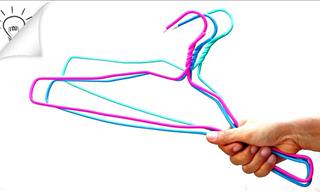
Wearing sunscreen is one of the simplest and most effective ways to protect your skin from sunburn, premature aging, and skin cancer. Yet, despite knowing its importance, many people still make common mistakes that reduce sunscreen’s effects. Dermatologists warn that improper sunscreen use can leave you vulnerable to the sun's harsh UV rays.
And the consequences are serious - skin cancer is one of the most common types of cancer diagnosed worldwide, with over 1.5 million new cases estimated every year.
To help you get the most out of your sun protection, here are seven common sunscreen mistakes you might be making—and how to avoid them.
Related: Wearing Sunscreen? Pay Attention to These 7 Critical Areas


To reap the full benefits of sunscreen, you should use it correctly. Unfortunately, many people apply too little, often using only 25-50% of the recommended amount. However, to fully cover your body, you'll need about an ounce of sunscreen.
When applying sunscreen, be sure to cover all exposed skin, not just the areas that will be directly in the sun. Additionally, apply the sunscreen 15 minutes before heading outside, and reapply it every two hours or after engaging in activities that cause you to sweat or swim.






7 Essential Tips to Maintain a Healthy Lawn in the Summer
Here are some simple and useful tips to maintain a lush, green lawn during the summer months.

6 Practical Tips on How to Avoid Buying the Wrong Bread
Can't live without eating bread every day? Try and avoid these common mistakes to pick the best one for yourself.

Common Skincare Mistakes That Accentuate Your Skin Concern
Are you investing a lot of time and money into your skincare, but still can’t see any results? You may be making one of these 7 mistakes...

Should You Preheat the Car Engine When It’s Getting Cold?
Experts say that leaving the engine run idle in cold weather is both a waste of your money and terrible for the car engine and the environment.

How High of an SPF Should Your Sunscreen Be?
How high should your sunscreen SPF be? This guide will tell you.
 13:59
13:59
Why Your Blood Pressure Numbers Might Be Inaccurate
These simple mistakes can lead to wrong blood pressure numbers.

13 Fantastic Alternative Uses of the Humble Apple
There is no doubt that apples are enjoyable to eat, but they can also do so much more. Here are 13 great alternative uses of apples.
 15:50
15:50
These 27 Household Hacks Will Make Housework a Breeze
Doing housework can be such a drag sometimes, but these 27 household hacks are here to help!

Ever Notice How All of Women's Problems Begin with MEN?
Ever Notice How All of Women's Problems Begin with Men?

Warning: Are You Overlooking These 10 Home Risks?
Home is where the heart is, but it’s also where a load of potential dangers lurk as well. Here are ten of them!

Smart Ways To Do The Dishes More Effectively
These 15 tips will help you keep your kitchen crystal clear and sparkling clean. It also ensures all your dishes have been cleaned in the most hygienic way possible.

If You Have a Pest Problem, Try These Pesticides Out
If your plants are being eaten by pests, here are 6 eco-friendly pesticides that you can make at home.

Everyday Hacks That Will Make Your Life So Much Easier
Try some of these ingenious everyday life hacks featured here. They are sure to simplify your life.

Keep Your Bananas Fresh Much Longer With These Hacks
Don't want your bananas to ripen too fast? These tips will help keep them fresh and flavorful for longer.

Guide: How to Win Every Argument
An extensive guide on navigating any group conversation gracefully.

A Must Have Kitchen Cheat Sheet to Help With Any Recipe!
Simple fact sheets that will turn any cooking job easier to understand.

Warning: Using Dryer Sheets May Cause You Health Problems
Is it really such a good idea to use dryer sheets? The answer may shock you.

6 Popular Grocery Items You Should Definitely Stop Buying
Many companies have become masters at selling us stuff we don't need. Here are some of the worst offenders.

Got an Oral Fixation? How to Identify and Cope With It
In this article I'm going to discuss both the causes of an oral fixation as well as the most reliable strategies to combat it.
 9:20
9:20
Why Do We Pop Our Ears, and What if it Fails?
Dive into the mechanics of this necessary, yet often overlooked, bodily function of popping your ears.

9 Natural Beauty Secrets to Make Your Skin Look Younger
Anyone who comes across a grandmother with a smooth, shiny complexion knows that her creams are all natural, so it's time to find out what's in them ...

Remove Unwanted Hair with These Natural Remedies
Got unwanted upper lip hair? Here's how best to remove it.

Making a Porcelain Sink Sparkle is As Easy As 1,2,3 and 4!
Porcelain sinks are beautiful, but they can be prone to staining. Luckily, there's a secret product out there that's perfect for making it sparkle once again.

10 Surprising Items You Can Clean in the Washing Machine
The washing machine can be useful for more than just clothes. 10 surprising items you can clean in the machine with no trouble.
 1:34
1:34
IMPORTANT: Why You Should Wipe Down Your Phone Every Night
What exactly is lurking on your phone, and how should you go about cleaning it?

Smelling Smart: A Man's Guide to Wearing Cologne
Whether you’re a cologne novice or a seasoned pro, this guide will elevate your fragrance game.
 3:12
3:12
Useful Ways to Repurpose Wire Hangers Everyone Should Know
4 extremely useful and clever ways of repurposing old wire hangers in your home, car, and garden.

If You Do These 6 Things, Burglars Won’t Target Your Car
Tips to effectively protect your vehicle from burglary and theft

10 Great Skin & Hair Treatments You Can Make with a Cucumber
Cucumbers have a whole range of benefits for your skin and hair. Here are some cheap and simple products that really work, and you can make them all at home.

7 Clear Signs You Need New Food Storage Containers
Is it time to replace your old plastic storage containers? Find out here...

These Pickpocket Tricks Should Be Known by Everyone!
Pickpockets love to use these tricks in order to steal from unsuspecting victims. Here's what to keep an eye out for.

20 Ways to Use Lemons You Never Knew About
Lemons are so wonderful - have you ever tried any of these uses?

4 Simple Ways to Open a Jar Lid That’s Stuck
Opening a jar can be quite tricky and sometimes seemingly impossible, really, but with these tricks, you'll be able to twist it open in no time!

Safe & Natural Recipes to Add Scent to Your Home
Forget those fake, unhealthy air fresheners and chemical-packed scented candles. Make your own natural scents and keep your home fresh.

Debunking 8 Common Misconceptions About Taxes
Let’s break down eight of the most common tax myths and clear up the confusion once and for all.
 4:58
4:58
I Unclogged My Bathtub Drain In 5 Minutes With This Clip
As disgusting as it may be, we sometimes need to deal with of a clogged drain. Learn how to unclog your bathtub drain in just minutes with this clip.

10 Pretty Houseplants That Are Nearly Impossible to Kill
These 10 plants are not only beautiful, they're also beginner-friendly and extremely easy to care for!

Rodent Alert: Ways You May Be Inviting Mice into Your Home
Have you been unknowingly attracting rodents into your home? Below we list 6 ways you may actually be inviting these pests into your house...

This Guy Found a Tip Book from the 60s, And It's Genius!
It turns out lifehacks aren't only a thing of the present, the 60's had their own book of tips and tricks to make life easier, and here are 8 of the best!
 11:42
11:42
The Ultimate Summer Life Hacks Explained
Dive into these essential hacks to elevate your summer experience!

A Comprehensive Guide to Growing Your Own Veggies!
There's nothing like starting the day with a fresh vegetable garden, and now you can do so every day with this ultimate veggie growing guide.

7 Items You Should Never Clean with Paper Towels
As useful as they are, paper towels are not fit for any task. Here are 7 items you should never clean with paper towels.

9 Tips to Ensure You Drink Enough Healthy Water Every Day!
Water is so important for our health it's hard to overstate. But most people find it rather dull. So, here are some tips to make sure you get enough.

14 Creative Uses For Old Wire Coat Hangers
Coat Hangers are not just useful for hanging your favorite clothes in the closet, they are handy in so many other ways too!

11 Handy Flight Hacks for Parents Traveling With Children
These tips will keep your kids happy on long flights.

This Is Why You Should Never Throw Out Silica Gel Packets
Have you ever thrown away these bags of silica gel? Of course you have. But here are some reasons why you SHOULD keep hold of them...

The 12 Perfect Rose Bushes for Beginner Gardeners
These wonderful roses require minimal maintenance, which makes them perfect for beginning gardeners!
To enable your Ad-Free Subscription, please fill the fields below
Your subscription was successful, now you can enjoy an ad-free experience!!
Note: To make sure you get no ads, please make sure to log in to your account. If you are logged in already, then refresh the page. The subscription can be cancelled at any time.


